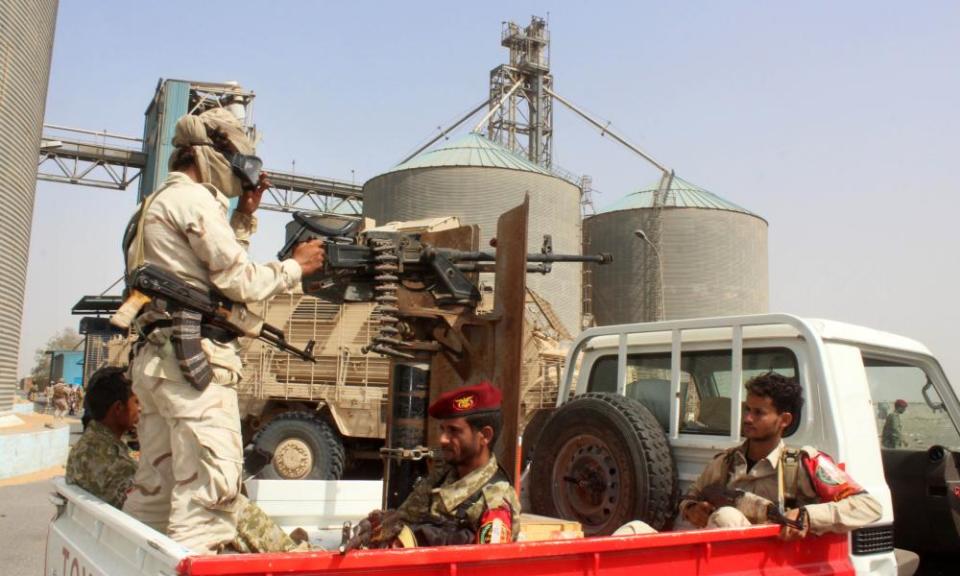Deal to free Hodeidah may open way for aid in Yemen, UN envoy says

A breakthrough agreement on the pullback of forces around the Red Sea port of Hodeidah may open the way for a large increase in the flow of aid into Yemen and prevent the country turning into a “bloody slaughterhouse”, Martin Griffiths, the UN special envoy for Yemen said.
The breakthrough was made at the weekend between military officials from the Yemen government and Houthi fighters controlling the port and city, and the redeployment of forces by the warring parties could start “possibly even today or tomorrow”.
Assessing the broader progress since an outline UN-sponsored agreement was reached between the parties in Stockholm in December, Griffiths said a “bloody slaughterhouse” has been avoided, but he also warned “famine still stalks this land”.
The UN is expected to ask for a further $4bn (£3.1bn) this year to alleviate the suffering of civilians at a conference next week in Geneva.
“Yemen, unlike some other conflicts, is solvable,” Griffiths said after months shuttling between Yemen’s key cities of Sana’a, Aden, Hodeidah and Riyadh, the capital of Saudi Arabia – the single most important external player in the three-year conflict.
Griffiths, speaking from Amman, in Jordan, said the prospect of the civil war remaining unresolved was terrifying. “A famine is stalking the country, and there is the threat to Red Sea shipping. The alternative to peace is so graphic in Yemen that it is a spur to the goodwill on which I am counting.”
Griffiths spoke after Houthi rebels and Yemen government commanders agreed at the weekend to launch the first phase of a redeployment of their troops around Hodeidah, the Houthi-held port and gateway for aid into the country.
The redeployment of troops around Hodeidah was agreed in principle in talks in Stockholm in December, but the proposed implementation timetable has been missed badly, leading some observers to claim the process might be doomed.
He said the controversial issue of a future depoliticised Hodeidah security force – coastguards in the port and police in the city – had now been passed to him to discuss with the two sides.
Griffiths said the agreement was only “an interim, stop-gap arrangement” to demilitarise the city of Hodeidah and did not decide the wider issue of sovereignty in Yemen.
He also said aid needed to increase massively to cope with the threat of famine.
He added the trust in the UN was also improving. “The UN has had a relationship of ups and down with Yemen. So for the UN to deploy a mission like this into the heart of the conflict is to throw a big stone in the pool. It has a big impact. The UN presence in Hodeidah is destined to be roughly the same size as the current UN humanitarian presence for the whole country, and that in itself is one of the largest UN humanitarian presences in the world.”
The additional monitors will ensure a better system to control the breaches of the ceasefire claimed by either side. “The level of violations of the ceasefire has consistently been good over time, given the context. There have been spikes, but … there has not been any taking of territory by one side or the other.”
Griffiths said international pressure had helped persuade the two sides to keep talking. “I think the heightened battle for Hodeidah had been continuing for four or five months, and the mass of international opinion wanting this war to stop has had a major impact on military planning. Hodeidah was the centre of gravity for the war, and we have been able to pull back from a bloody slaughterhouse.”

 Yahoo News
Yahoo News 